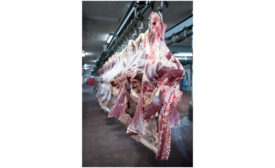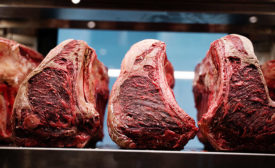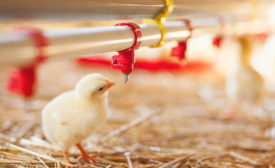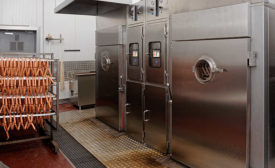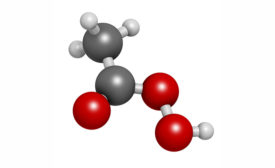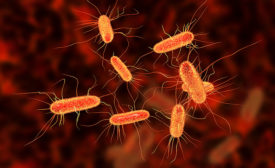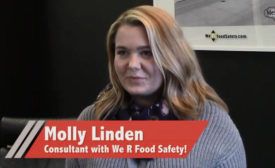Home » Keywords: » bacteria
Items Tagged with 'bacteria'
ARTICLES
Tech | Meat Science Review
Surveying the dry-aged beef crust
Microbial communities on dry-aged beef in commercial meat processing facilities.
November 6, 2020
Tech | Processing
Steamed up for food safety?
Hydrated surfaces appear effective at preventing bacteria from forming during the heating process.
Read More
2020 Food Safety Report | Science & Technology
The chemistry of peracetic acid
March 9, 2020
Stay ahead of the curve. Unlock a dose of cutting-edge insights.
Receive our premium content directly to your inbox.
SIGN-UP TODAYCopyright ©2024. All Rights Reserved BNP Media.
Design, CMS, Hosting & Web Development :: ePublishing
